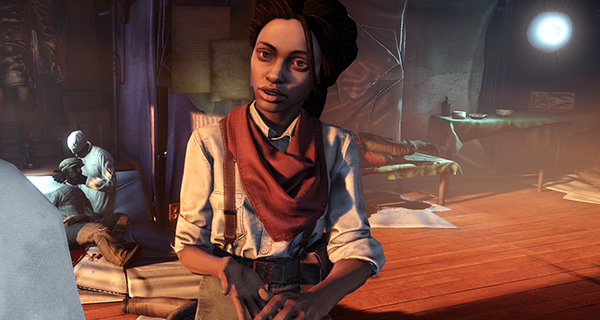Digital Humanities has the opportunity to propel a diverse conversation in gender, race, and class studies that would include both social and theoretical levels of intersectionality. Digital Humanities as a discourse, itself, is argued by Claire Potter in her article "Putting the Humanities in Action: Why We Are All Digital Humanists, and Why That Needs to Be a Feminist Project" to be synonymous to the histories of media that are "intertwined" with gender, race, class, and therefore require feminism as part of that discourse. The digital sphere is not without sexism, racism, and classism, but we can begin to interpret how integrating women, women of color, women of color from poor backgrounds, can be represented in a digital platform.
Realistically, gaming culture would replicate that which it attracts - that is, a vast diversity of individuals from all backgrounds of gender, race, and class. However, this is not always the case. Unfortunately, the gaming industry is not representing diversity. When women of color, for example, are characters in a game, they typically fall into the trope of headstrong black-womanhood that was perpetuated as a stigma of black women after slavery was abolished. They often die out, are never seen to complete their mission, and often are portrayed either as complex or negatively. If they are not represented in this light, then they are perpetuated as sexual fantasy. While this is common for women of all colors in video games, black women, or women of color, are further exploited in this area for their "exotic" nature and the institutionalized racial stigma that black women are "Jezebels" to further purify the sanctity of white womanhood.
via rockpapershotgun.com
Daisy Fitzroy: Radical activist in Bioshock Infinite. Her character dies in trying to fight for equality. She is in opposition to the hierarchy scene within the game, and expresses dissatisfaction in the main character until you aid in her cause. However, the perpetuation of her in black womanhood diverts the player away from her character and cause and fixates on her causation of chaos within the game. In her death, she is idolized as a martyr.
via wikia.net
Sheva: main character from Resident Evil V as represented in one of her DLC "costumes." While her main outfit is not as exposing of her body, the adaptation of her "costumes" to develop her character further away from a practical standpoint to one of exploitation. It is important to note that her sexuality is further dependent on the Africana statement of her clothing, to designate her as a black woman.
via Nintendo
Dandara is an indie game with a black woman as the main protagonist. The premise of the game is set in an oppressed world by supernatural beings, and Dandara is awoken with mystical empowerment to stop them. Her character is both representative of freedom and power, and creates a creative representation of black womanhood in an oppressed world.
Although the portrayal of black women in video games typically play into perpetuated stereotypes by white supremacy, the indie game industry is an area of game culture that has the opportunity to portray not only appropriate diversity, but convey characters that represent and identify with a wider audience, and take away from perpetuating false pretenses. While indie gaming still has far to go in this manner, few companies are starting to introduce a colorful attribute to their discourse. As indie gaming is typically off-beat, the mode to introduce and means to convey a different representation of gender, race, and class is available through gaming experimentation. Significantly, the importance of story within indie games is a strong platform for diversity to flourish and become widely and accurately represented.


